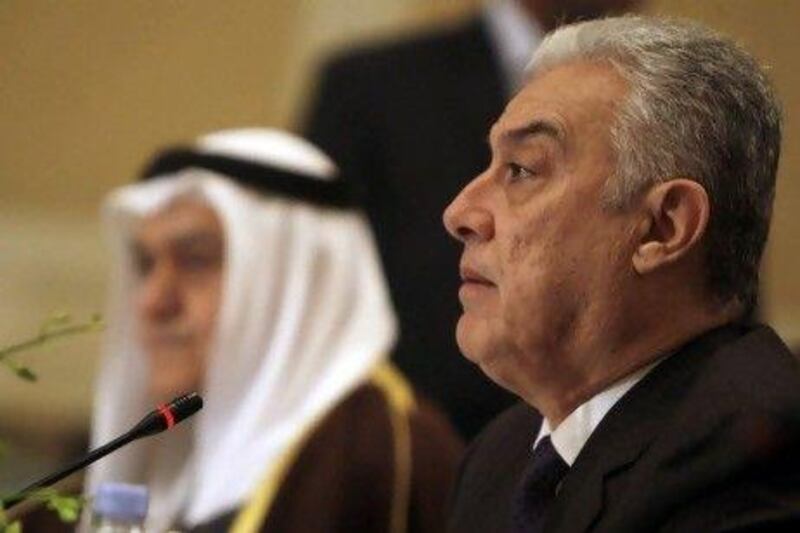CAIRO // The most controversial element of the now-defunct gas deal between Egypt and Israel was the perception that the gas was subsidised by Egyptians.
It is the crux of the court case, which is scheduled to have a hearing today in Cairo, alleging that several Mubarak-era energy officials and an Egyptian business tycoon caused the state to lose US$714 million (Dh2.6bn).
But energy analysts said that all of Egypt's gas exports - including those to Spain and Jordan - were sold at a lower price than the country could have achieved if it had sold to Asian buyers.
Executives from the Israeli Electricity Corporation (IEC), the owner of the pipeline East Mediterranean Gas (EMG), and Egypt's energy officials agreed in 2005 a gas price based on a formula tied to international fuel prices in confidential negotiations, according to two officials involved with the deal who spoke on the condition of anonymity due to the pending lawsuits and arbitration cases.
The Egyptian government also set a floor of $0.75 (Dh2.7) per million metric British thermal units, or MMBTU, and IEC set a ceiling of $1.5. EMG would sell to IEC with a floor of $1.5 and ceiling of $2.75 per MMBTU.
However, the pipeline was delayed at the request of former president Hosni Mubarak, who wanted to lower the profile of the deal during the second Palestinian intifada.
By the time construction was complete in 2008, global energy prices had skyrocketed. The Egyptian government demanded that EMG and Israel renegotiate the price.
The parties eventually struck a new deal where EMG would pay Egypt $3 MMBTU for a portion of the gas - 2.1 billion cubic metres - and sell to Israel for $4.25 MMBTU, substantially raising the price. Additional portions of gas would be priced differently, said officials familiar with the deal.
Energy experts say that Egypt could have found a way to export its gas to Asian buyers at a higher price and with a higher "net back", which is the money a producer receives after subtracting transportation costs.
"In 2007 and 2008, before the global economic crisis, and certainly from 2011, Egypt could have definitely received higher netbacks on gas in Asia," said Hakim Darbouche, a research fellow at the Oxford Institute for Energy Studies in the UK.
But he said that Egypt was selling all of its gas at low prices during the time of the Israel deal, including exports to Spain and Jordan. This could be attributed to Egypt's attempts to use the exports to cement its position in the region, gaining a degree of economic normalisation with Israel and increased influence with Jordan and Spain on political and economic issues, Mr Darbouche said.
The legal team for the accused Egyptian energy officials have argued, however, that the amount of income Egypt was receiving from the Israel gas deal was on par or greater than that earned by other regional gas exporters such as Qatar.
[ bhope@thenational.ae` ]
Follow
The National
on
[ @TheNationalUAE ]
& Bradley Hope on
[ @bradleyhope ]






